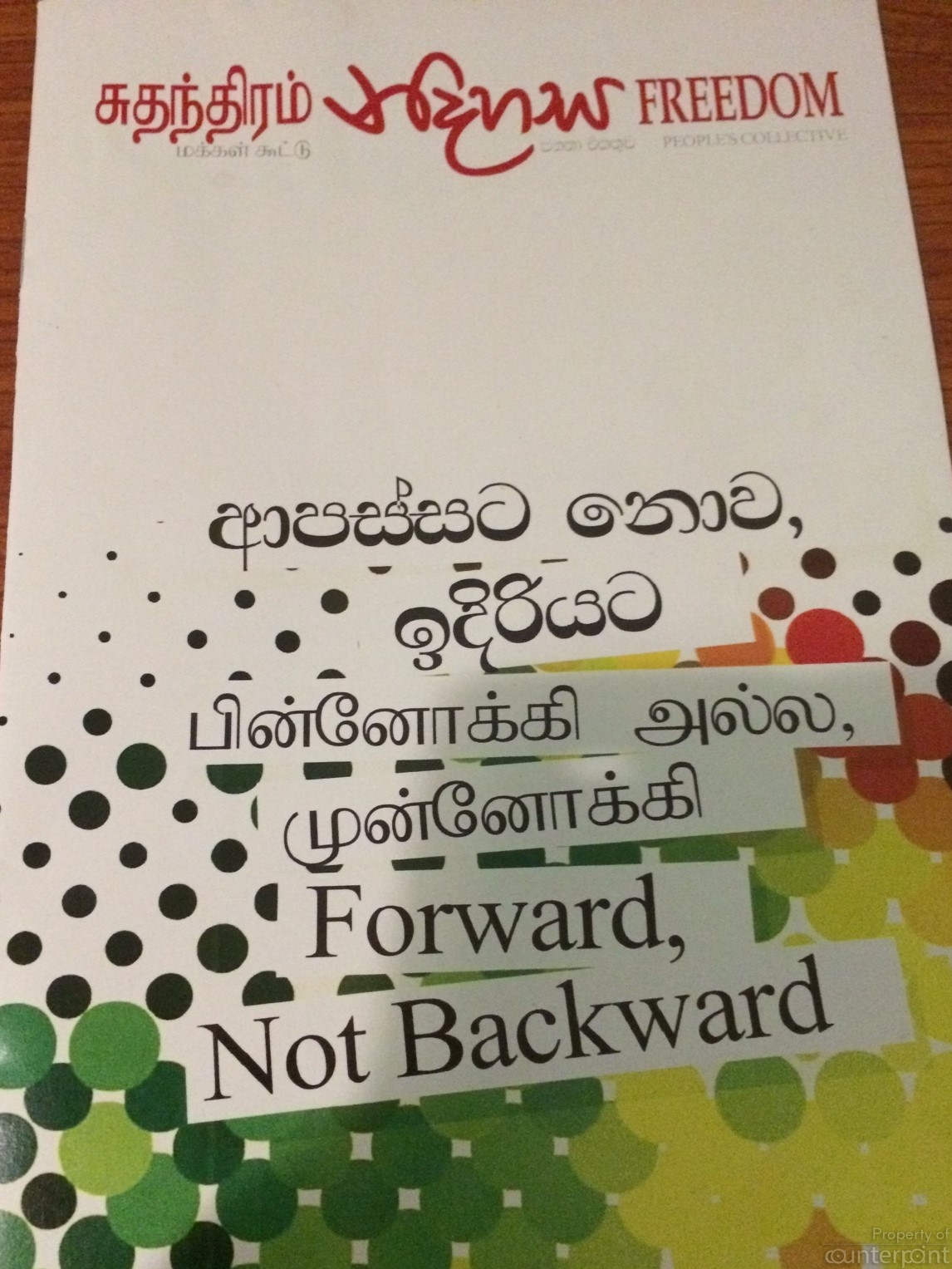The ‘Freedom, People’s Collective’ is calling on voters, come August 5th, to ensure that it does not ‘mark the beginning of the end of Sri Lanka’s parliamentary democracy.’
Launching the People’s Collective at the New Town Hall on July 8, speakers extolled the virtues of the 19th amendment and warned that plans by the current government’s leaders to abolish it, would pave the way to restoring the Executive Presidency and the unfettered powers that go with it.
Democratic governance, as experienced in Sri Lanka has not been the best: ‘endless corruption, abuse of power, oppressive misrule, deceptive promises to the electorate, and ineffective, irresponsible and weak governance,’ has been the hallmarks of our system say the Collective. However, ‘expansion of Public Sector services, more than in other countries of similar conditions, has been a significant democratic gain achieved since independence.’
For instance, said Lawyer, Javid Yusuf, because the Independent Election Commission had the powers to postpone the parliamentary election scheduled for April 25th this year, it was able to help contain the spread of COVID-19. Further strengthening such institutions is the only way to hold governments accountable, and that is possible only if democracy is preserved, he stated. “Justice is achieved, through Commissions that are Independent.’
He also said that politics today has moved away from conservative, liberal, capitalist discussions to be replaced by the individual contestant at an election. Therefore, it is important to consider how they have acted; are there any court cases against them, their conduct, are they worthy of our vote.
Both Professor Rohan Samarajiva and Gamini Viyangoda drew parallels to various situations such as Hungarian Prime Minister Viktor Orban’s rule by decree, and the Philippine’s President Duterte’s in their actions to combat COVID-19, and Adolf Hitler as Chancellor in the 1930’s, all autocratic behaviour which negatively impact the freedoms people enjoy.
Abolishing the 19th amendment, explained Viyangoda is a means to destroy the balance held between the Legislature, the Executive and the Judiciary. ‘Plans to concentrate power in one person is to subvert parliament.’ He added that both the 17th and 19th amendments were progressive changes to the constitution, while the 18th amendment was a regressive one. The public must question why a leader wants to have full powers, he said, adding that it is not to benefit the country but it is to move towards an anti-democratic dictatorship. Previously, the military was used to put down rebellions ‘ twice in the South and once in the North, but today, we see it deployed in civilian administration, the Health and Agriculture sectors being such instances.’ He also said that the victory of President Gotabaya Rajapaksa in 2019 was in reality the result of the weakness of the Yahapalanaya government of 2015-2019.
Democracy is preserved, said Professor Samarajiva, through public hearings and consultations, not through ad-hoc, short-term and uniformed decisions.
Communications and Advocacy Specialist Manu Tissera explained that in the case of women, it is essential that they do not have to hide behind a male persona to become independent and successful individuals. Women are restricted by society’s idea of who she should be; there are no legal restrictions, only those imposed by society, she pointed out, that prevents a woman from using her full potential and meeting her aspirations. Fifty two percent of Sri Lanka’s population is women, and 20% of households are headed by women, yet society believes that though she has the ability to run a home, she cannot be involved in running a country. ‘Where is women’s representation in all of the Independent Commissions, Task Forces and Commissions that have been set up,’ she asked. She added that violence in politics does not even leave the spouse of a male politician out; ‘they sling mud even at the wives.’
Democracy and democratic institutions must be preserved, she said, adding that the votes we cast must reflect that.

The 2015-2019 Yahapalana government did not display the commitment to make the 19th amendment work, said Professor Sarath Wijesuriya, who pointed out, however, that it was the strengthening of the institutions that empowered the Judiciary to give the ruling it did during the constitutional coup of 2018. There is no point in talking about the missed opportunity of the 2015-2019 era, he said, adding that the incumbent President and the government is seeking a 2/3rd majority at the forthcoming parliamentary election to abolish the 19th amendment and get full control, which will effectively affect the freedoms people enjoy. He also pointed out that media has played a role in blacklisting civil society and promoting racial tensions. Media owners justify their actions, but ‘media freedom is important both for that industry and the people.’
The People’s Collective draws examples from the past on how non-political activism can play a role, said K W Janaranjana, who acted as the Moderator of the event. This is a time when all of society’s values and standards are gradually being chipped away paving the way for an Executive Presidency and the public needs to be aware of that situation and what could happen after August 5th, he said.
Members of the Clergy, academics, human rights activists, lawyers and politicians were amongst those invited to the stage to receive copies of the Collective’s booklet Forward, Not Backward,’ which outlines its aspirations.
“Freedom, People’s Collective’ appeals to all voters to send to parliament through their vote only those candidates who are committed to a democratic constitution, democratic institutions and democratic traditions,’ the booklet concludes





